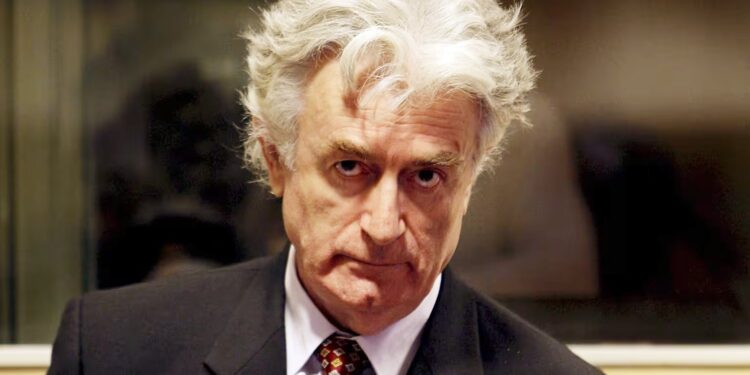Radovan Karadžić, a Bosnian Serb politician and convicted war criminal, played a central role in the Bosnian War (1992–1995). As the first President of the Republika Srpska and the leader of the Serbian Democratic Party (SDS), he was a key figure in the conflict that followed the breakup of Yugoslavia. His actions during the war led to his conviction for genocide, crimes against humanity, and war crimes.
Early Life and Political Rise
Born on June 19, 1945, in Petnjica, Montenegro, Karadžić studied medicine and became a psychiatrist before entering politics. In the late 1980s, as Yugoslavia faced rising nationalism, he co-founded the SDS, advocating for the rights of Bosnian Serbs. When Bosnia and Herzegovina declared independence from Yugoslavia in 1992, Karadžić opposed the move, leading Bosnian Serbs in their bid to establish their own state, Republika Srpska.
Role in the Bosnian War
As the president of Republika Srpska from 1992 to 1996, Karadžić oversaw military operations against Bosniaks (Bosnian Muslims) and Croats. He was accused of orchestrating the ethnic cleansing campaigns that led to the deaths of thousands. The most infamous atrocity linked to his leadership was the Srebrenica massacre in July 1995, where over 8,000 Bosniak men and boys were executed by Serb forces. The siege of Sarajevo, which lasted nearly four years and resulted in the deaths of over 10,000 civilians, was another key event under his command.
War Crimes and Arrest
In 1995, the International Criminal Tribunal for the former Yugoslavia (ICTY) indicted Karadžić for war crimes, including genocide. After the war, he went into hiding for over a decade, evading capture by assuming a false identity as a healer and alternative medicine practitioner. In 2008, he was finally arrested in Belgrade and extradited to The Hague.
Trial and Conviction
In 2016, the ICTY found Karadžić guilty of genocide, war crimes, and crimes against humanity, sentencing him to 40 years in prison. In 2019, his sentence was increased to life imprisonment. He is currently serving his sentence in the United Kingdom.
Legacy
Radovan Karadžić remains a highly controversial figure. While some Serb nationalists view him as a hero who fought for their interests, the international community largely condemns him as a war criminal. His conviction serves as a reminder of the atrocities committed during the Yugoslav Wars and the importance of international justice.
newshub



Recent Comments